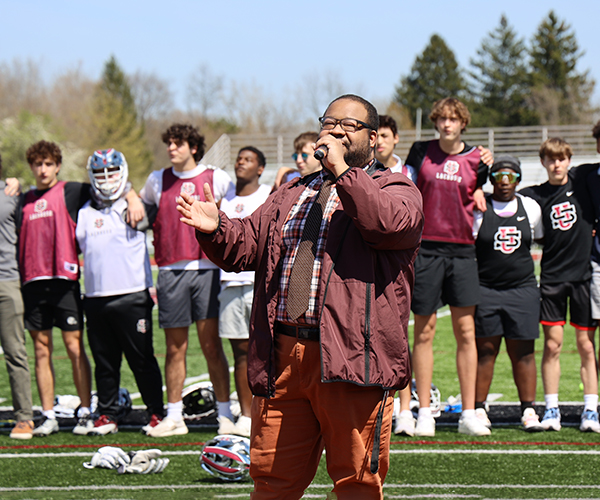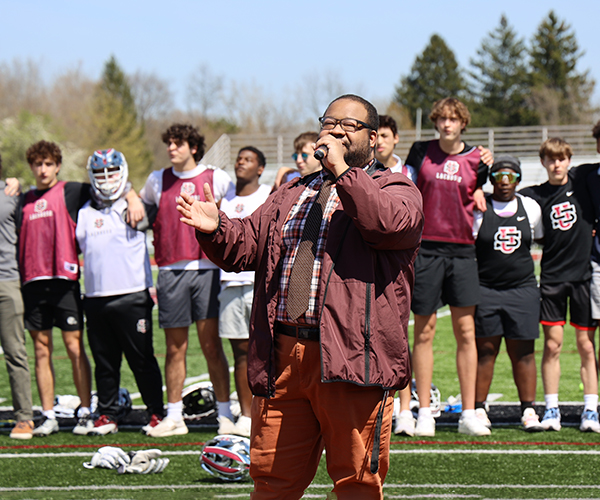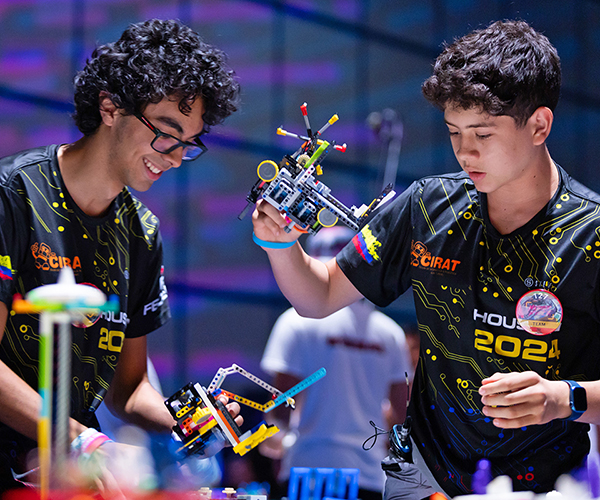“We look at myriad factors when assessing a student’s academic performance: the difficulty of the course work, competitiveness of the high school, grading scale and grades in most recent course work,” says Susan Dileno, vice president of enrollment management at Baldwin-Wallace College. “At the critically acclaimed Baldwin-Wallace Conservatory of Music, students are expected to prepare three works from the standard repertoire representing different musical periods and styles. Admission to the Conservatory is pending receipt of the college/conservatory application and a successful audition on campus, at off-campus sites or via recording.”
“As a public institution, Cleveland State University has a defined admissions criteria,” says Jill Oakley-Jeppe, acting director of admissions at Cleveland State University. “Grade point average, ACT or SAT scores, and high school courses, including four English courses, three math, three social science and three natural science are required. Entrance in the honors program requires a minimum score of 30 on the ACT, 1,930 on the SAT or placement in the top 10 percent of their class. Activities, leadership and AP or honors courses are taken into consideration as is the mandatory autobiographical essay.”
“As an intentional and spiritual community offering preschool through grade 12, Gilmour seeks motivated students who take their education seriously and are committed to developing habits of the heart,” says Devin Schlickmann, dean of institutional advancement at Gilmour Academy.
“Qualified students should demonstrate academic achievement and display a high level of personal accountability. Students embrace a Holy Cross mission of service and justice. They recognize that contributing meaningfully in a complex world should not be done at the expense of living a moral life.”
“Hathaway Brown students are committed to its academic life, are energetic about the school’s learning environment and are excited about its opportunities,” says Sarah Liotta Johnston, director of admissions and financial aid at Hathaway Brown School. “Programs including its nationally recognized science research program and service learning program have transformed the school, inviting students to work with professionals outside the classroom. Its entrepreneurship and writing center programs encourage students to expand their skills while its newly created center for global citizenship promotes investigating the world through guest lectures and travel.”
“Hawken students are above-average to exceptional both from an academic and a behavioral standpoint. They can handle a pre-college preparatory curriculum and live up to the expectations of our community,” says D. Scott Looney, head of Hawken School. “We are committed to diversity and pride ourselves on our student body’s strong socio-economic mix. We have students who are musicians, athletes and those who think that robotics are cool. We encourage parents to apply for financial assistance and have an above-average percentage of students who receive aid.”
“Hiram College looks for students with broad interests who want to engage in everything that a small, liberal arts institution has to offer,” says Timothy Bryan, vice president for institutional advancement at Hiram College. “A student’s education is what he or she makes of it at any school, particularly at a small college. Hiram tells students and parents that they may tailor their educational experiences to meet their educational and co-curricular interests and goals.”
“There are fundamental questions we consider when making an admission decision,” says Thomas Fanning, director of admission and retention at John Carroll University. “By reviewing the student’s high school record, we determine if the student can and will do the work. This determines the person’s ability, motivation and responsibility. Then we determine what the person will contribute to John Carroll. We look for a student who stars for an athletic team, DJs, captains the debate team, has had a transformative experience in a service project or values the community and mission.”
“Students are concerned about finding the right fit, the level of academic rigor, what class schedules will be like and what life outside the classroom can include,” says Robin McDermott, vice president for enrollment management and student affairs at Lake Erie College. “We also receive questions about our nationally recognized equine studies program with majors in equine facility management, teacher/trainer, equine business and stud farm/facility management. Pre-veterinary students find the equine science courses excellent preparation for veterinary school, with nearly 100 percent of graduates receiving acceptance. Students may even bring their own horse to college.”
“We encourage parents to collect information, to visit our school and talk with faculty, students and current parents. Our admissions process is thorough so that when we offer an enrollment contract to a family, it is a promise for success,” says Alexa Hansen, director of admission and external relations at Lake Ridge Academy. “Students ask about homework expectations, extracurricular activities and travel-abroad programs. We encourage them to spend a shadow day to compare what they are currently learning with what their peers at Lake Ridge are learning.”
“Laurel’s mission is to inspire girls to fulfill their promise and to better the world. We are looking for girls who are curious and eager to learn, willing to work hard and committed to serving others,” says Mary Lisa Geppert, director of admission and financial aid at Laurel School.
“Whether a girl’s interest is in academics, athletics or the arts, Laurel will provide the support and encouragement needed to capitalize on her strengths and meet challenges with confidence. Here, she will find her voice and discover her passions.”
“Because Lawrence School exclusively serves bright students with learning disabilities and attention deficits, parents and students are interested in our academic requirements,” says Jeffrey Petrulis, Upper School dean of admission and college guidance director at Lawrence School. “We realize that, due to their learning differences, our students often score low on tests when their intelligence and knowledge levels meet, and often exceed, that of their contemporaries. Once students are given the organizational and technological tools to compensate for their learning disabilities, they begin to achieve success with grades and testing.”
“At University School, we know boys and how they learn best,” says Chris Barton, director of admissions at University School. “We seek boys who will be a good match not only for our rigorous curriculum but also our vibrant school culture, where academics are complemented by athletics, performing arts and community service. Above all else, we seek boys of character who will enrich our school with their talents, interests and personalities.”
“We are looking for students who not only have demonstrated success but also have the potential to be successful academically and in extracurricular areas,” says Britt Flanagan, dean of admission at Western Reserve Academy. “We offer 17 sports options in our $17 million facility and a state-of-the-art facility for music, dance, theater and art. For the academic competitor, there are academic teams. For instance, annually we place in the top five nationally in our division for the Junior Engineering Technical Society competition.”



